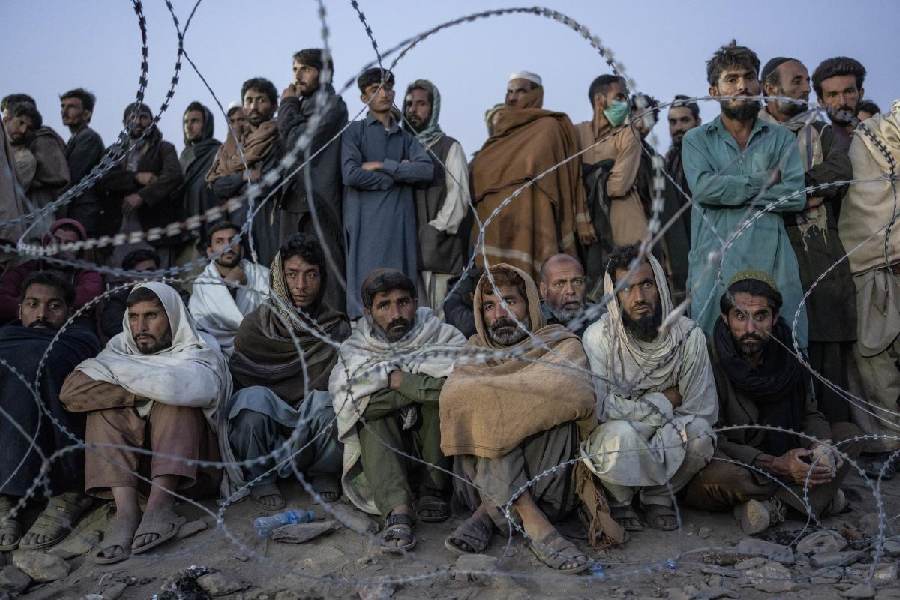The Pakistan government on Saturday put on hold till December 31 its decision to also repatriate the legal Afghan refugee residents whose legal residency documents expired this year.
The decision came after a caretaker information minister of Pakistan's Balochistan province Jan Achakzai on Friday said that the government had decided to also send those Afghans back to their country who were living with legal documents in the country for years now after their documents expired.
"It has been put on hold until 31st December to also deport those Afghan refugees whose Proof of Registration or the PoR cards had expired this year," said an official announcement.
The deportation of illegal Afghan refugees staying in Pakistan has been going on since the government gave an ultimatum to all unregistered foreign nationals to leave Pakistan by November 1 after which action would be taken against them according to law.
Achakzai said that the drive to deport illegal immigrants mostly Afghans was continuing successfully and until now as many as 250,000 Afghans had voluntarily returned home while another 80,000 were deported via Chaman and Torkham borders.
“The decision to send back even those living with legal documents has been taken as a sovereign state as Afghan soil is being used by terrorists to target Pakistan and its security forces and people,” the minister said.
Achakzai said that many Afghans had been involved in terror and criminal activities in Pakistan and noted that recently six terrorists were killed in Zhob Balochistan and they were all Afghan nationals.
“With the new [Taliban] government set-up taking charge in Afghanistan two years ago, the incidents of terrorism in Pakistan have increased,” he claimed.
There is growing pressure on the Pakistani government from the United Nations Commission for Refugees and other countries to not deport the Afghans who had fled the Taliban rule in 2021 or the conflict and persecution at home since the Russian invasion and had legal documents.
Pakistan claims there are around 1.7 million Afghans living illegally in the country.
Ackahzai said the Balochistan government has so far blocked some 100,000 fake Computerised National Identity Cards (CNICs) of Afghan nationals and another 20,000 fake CNICs had reportedly been blocked in Sindh.
The Proof of Registration or the PoR cards of the legal Afghan refugees expired on June 30, 2023. The extension of the validity of PoR cards was denied by Islamabad without any explanation for the subsequent delay.
Now, Afghan refugees will be able to get their PoR cards extended.
As Pakistan continues with the deportation of illegal Afghanis, international human rights bodies have criticised Pakistan's move.
They have said that Afghans fleeing Pakistan to avoid arrest and deportation are sleeping in the open, without proper shelter, food, drinking water and toilets once they cross the border to their homeland.
Arshad Malik, country director for Save the Children, said many of those returning are coming back without education documents, making it difficult for them to continue their learning, as well as lacking the local Afghan languages of Dari and Pashto because they studied Urdu and English in Pakistan.
He warned that child labour in Afghanistan as well as their involvement in smuggling are likely to increase due to poverty as most returning families were among the poorest migrants in Pakistan.
The Human Rights Commission of Pakistan (HRCP) Chairperson Hina Jilani in a letter addressed to the UN High Commissioner for Refugees Filippo Grandi stated that the Pakistan decision to expel Afghans could “trigger a humanitarian crisis”.
Similarly, the National Commission on the Status of Women wrote a letter to Interior Minister Sarfraz Bugti, saying that there were approximately 2.5 million widows in Afghanistan, some of whom came to Pakistan in search of livelihood.
“These women are journalists, doctors, software engineers, and others who are undocumented due to various circumstances beyond their control,” it stated.
Except for the headline, this story has not been edited by The Telegraph Online staff and has been published from a syndicated feed.











